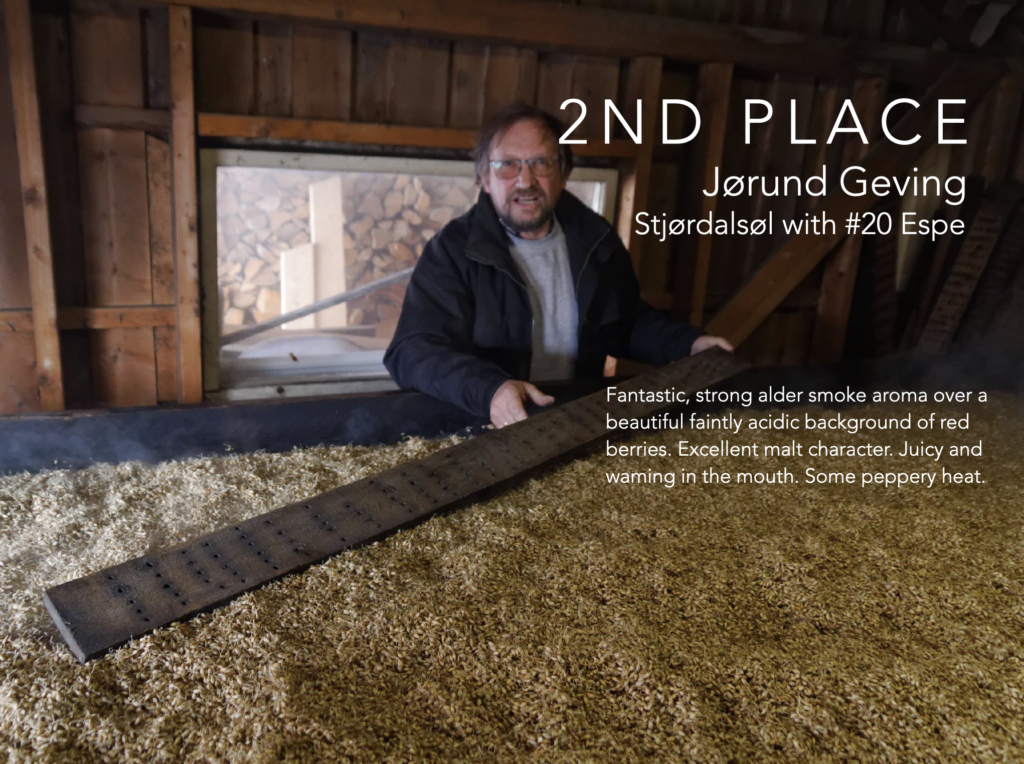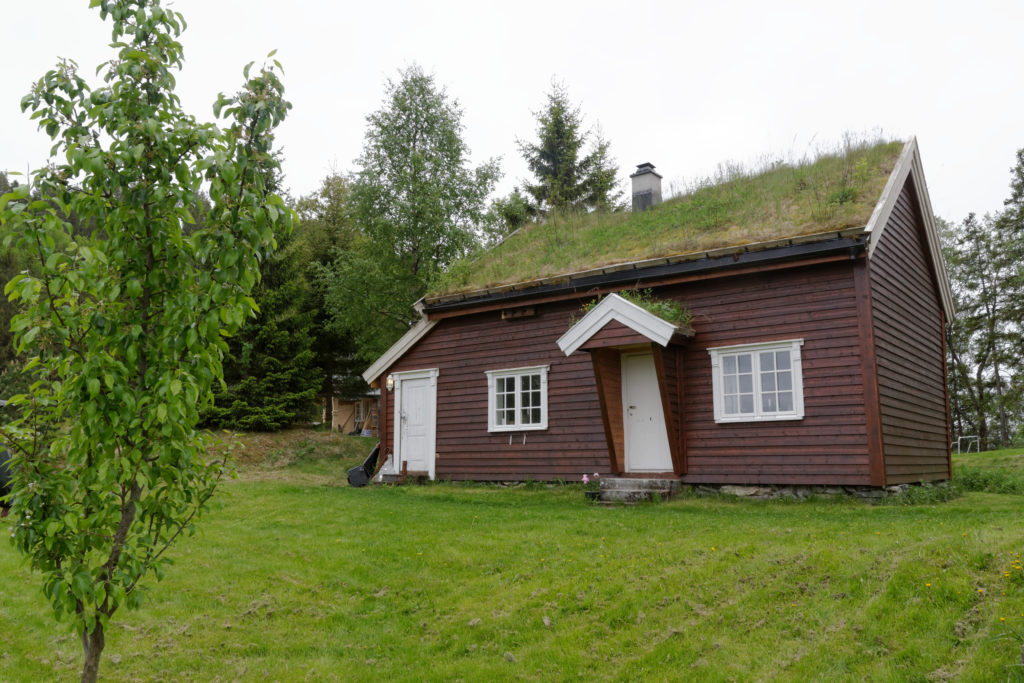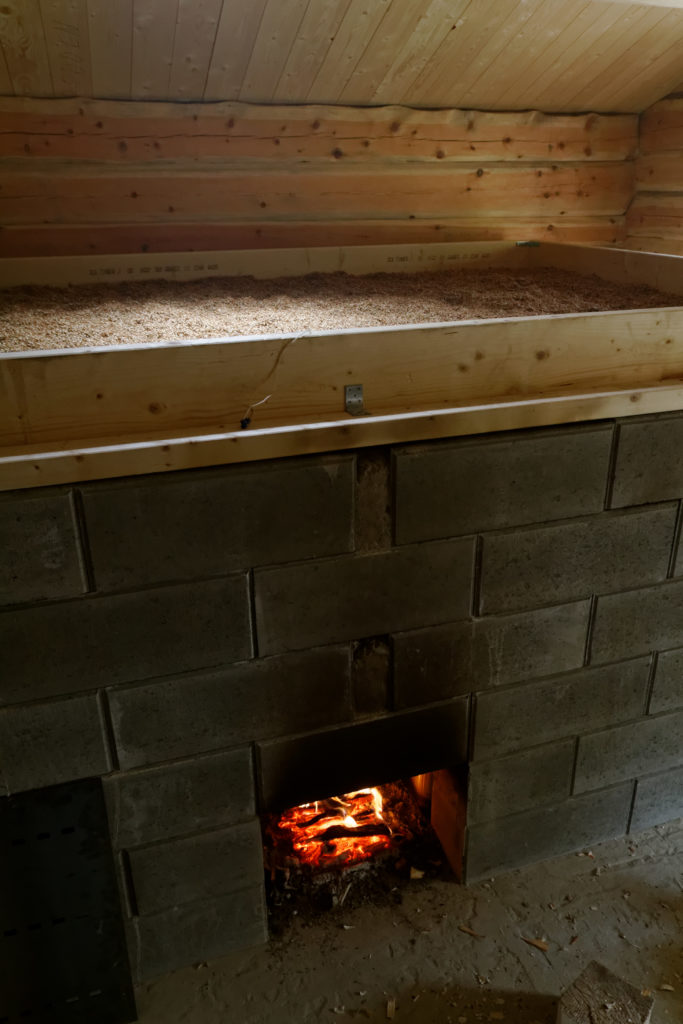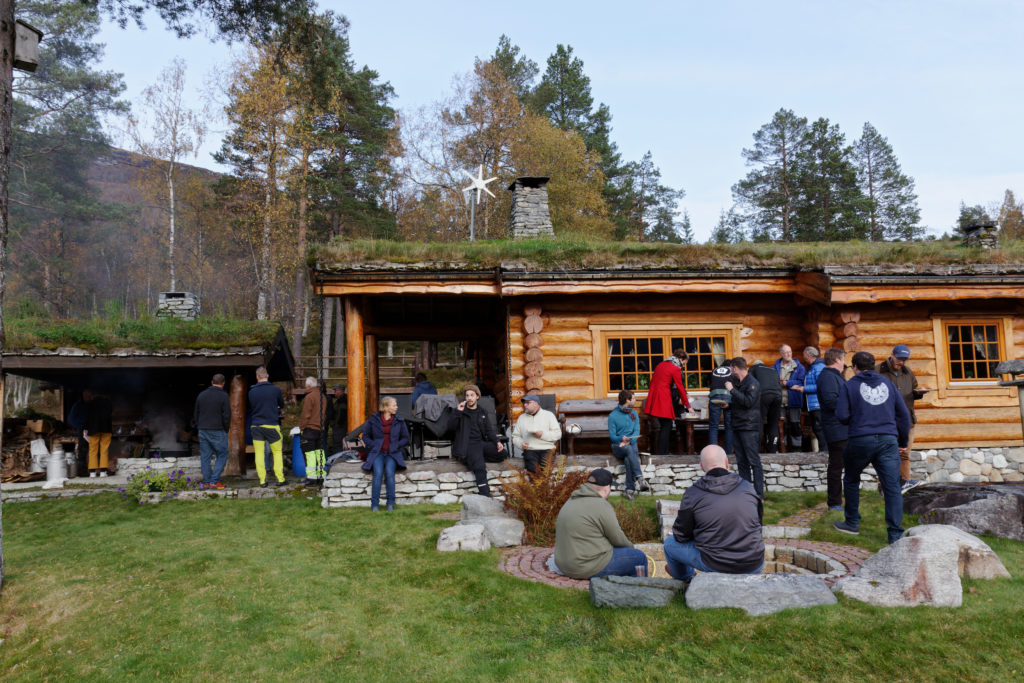
The slides from Mohammed Tawfeeq’s talk on his kveik research are now available for download below. You can also watch the presentation itself on Youtube.

The slides from Mohammed Tawfeeq’s talk on his kveik research are now available for download below. You can also watch the presentation itself on Youtube.

As promised, Martin has sent the slides for his talk on farmhouse yeasts from the Andes, Bhutan, and Ethiopia. You can download the slides here:
He also sent these links to the studies he mentioned in his talk:

The talk itself can be seen on Youtube, starting at 02:30:00.
Da har vi endelig resultatene fra hjemmebryggerkonkurransen klare.

Jørund Geving fra Stjørdal vant fortjent med sitt stjørdalsøl gjæret med Idun Blå.
Juryens vurdering: «Fantastic, strong alder smoke aroma over a
beautiful faintly acidic background of red berries. Excellent malt character. Leather, dry wood, and caramel fill out the complex, rounded flavours.«

Andreplassen gikk til et øl fra samme vørter, men gjæret med Arve Espes kveik. Ølet var ganske likt det som vant, men hadde noen forskjeller, og scoret ikke like høyt hos dommerne.
Dommernes vurdering: «Fantastic, strong alder smoke aroma over a
beautiful faintly acidic background of red berries. Excellent malt character. Juicy and waming in the mouth. Some peppery heat.«
Tredjeplassen gikk til et øl som skilte seg ut, med lett og lys kropp, og tydelige toner av urter. Dommernes vurdering: «Light, delicate fresh and beautifully drinkable beer, with a very clear herbal signature that’s very carefully balanced. A “daring and fun” beer.«

Fjerdeplassen gikk til et veldig godt råøl med 15% stjørdalsmalt, gjæret med Olav Sverre Gausemels kveik. Dommernes vurdering: «Beautiful combination of smoke and caramel with hints of red berries. Quite phenolic. Balanced and complex, not much to complain about.«

Sigurd Johan Saure fra Sykkylven tok en sterk femteplass med et ekstra sterkt kornøl på 12%, gjæret med hans egen kveik, #8 Tormodgarden. Dommernes vurdering: «Lovely combination of fruit and caramel, good and complex. Didn’t quite make it because the alcohol flavour bothered some of the judges.«
Her er den fulle resultatlisten, med dommernes poengsetting. Rekkefølgen på de første 5 stemmer ikke helt med poengene, fordi dommerne dømte finalen uten å gi nye poeng. I stedet ble man bare enige om rekkefølgen.

Rekkefølgen på ølene som ikke kom til finale er litt omtrentlig og ikke finjustert av dommerne.
Filen under er alle dommerskjemaene innscannet som PDF. Hvert skjema er merket med dommer og bokstavkoden til ølet. Bokstavkoden for ølet ditt finner du i tabellen over.
Vi er veldig takknemlige for å ha fått støtte fra sponsorer til å gjennomføre årets festival. Årets festival er gratis, men vi har fortsatt en del utgifter med å arrangere den, så sponsorstøtten er høyst velkommen.
Sendingen fra Hornindal er sponset av Enivest, som har satt opp gratis bredbånd for oss der bryggingen skal foregå.

I tillegg er det mange som har støttet oss med penger. Det setter vi veldig pris på, og de pengene kommer godt med. Tusen takk, alle sammen!
English: This year’s festival has no income since it’s free, but we still have some costs. We’re very grateful that Enivest sponsored us with free broadband from the brewhouse in Hornindal.
We are also very grateful to those of you who have supported us with money donations. That is very much appreciated, and the support is very valuable for us. Thank you!

The third brew we will be showing is going to be in Voss, where Dag Jørgensen and Kjetil Dale will be brewing in Kjetil’s old brewhouse.
The beer they’ll be making, a vossaøl is very different from the beers from Hornindal and Stjørdal, because of the long mash, and not least because of the very long caramelizing boil. Just as in Hornindal the brewers in Voss use kveik.
Vossaøl is often grouped with the beers from Hardanger to the south and Sogn to the north into the style called «heimabrygg» (literally: homebrew).
Present for the brewday will be:
The guys have promised some surprises on the way as well.


Mika Laitinen will appear in the festival stream to show how Finnish taari was brewed.
Mika is a Finnish author and home-brewer who has written several books on traditional brewing. His most recent is Viking-Age Brew: The Craft of Brewing Sahti Farmhouse Ale.
Taari was a form of farmhouse ale brewed in eastern Finland, using the great Russian-style ovens. It is related to Lithuanian keptinis. Mika will give a demonstration of how it was done at 19:50 Norwegian time.


The second live brew we will be showing is from Stjørdal in central Norway, where Roar Sandodden will be brewing a stjørdalsøl on his farm Alstadberg.
In case you’re not familiar with it, stjørdalsøl is a very different style from the first brew, which will be a Hornindal kornøl. Stjørdalsøl mainly stands out because of the way the locals make their own malt (see below), which is massively smoked with alder wood. The normal yeast to use is standard bread yeast from the shop. Traditionally it was also normal to use juniper and hops, but some people have started skipping one or both.
Present for the brewday will be:
Because the malt-making is such an important part of the brewing in Stjørdal we will show not just the brewing, but the guys will also be drying a batch of malts in Roar’s malt kiln at the same time. Roar uses the traditional type of malt kiln known as a «såinn».


Martin Thibault has been seeking out farmhouse brewers all over the world for almost one decade now. He writes about his finds on his blog, in American beer magazines, and in French-language books.
Over the years he has visited farmhouse brewers in Lithuania, Norway, Estonia, Finland, Peru, Bolivia, Bhutan, and Ethiopia.
During the festival Martin will give a talk on what he’s found on his travels. The talk will be at 2030, European time.
Beyond Kveik: 3 Unexplored Hotspots for Heirloom Brewing Yeasts
Traditional farmhouse beer cultures thrive to this day, hiding in
plain sight from the Western world. Although their ingredients and
recipes vary from ours, one thing unites these three hotspots with
Norway’s own deeply-rooted brewing culture: they each have
unfathomable quantities of their own heirloom yeast blends.

During the festival one of the places we’ll be showing brewing from is Hornindal, where Stig Seljeset and his friends will show how a traditional kornøl from Hornindal is brewed.
For those who don’t know, kornøl from Hornindal is brewed with juniper infusion, fairly pale malts, noble hops, and kveik. It’s a beer where the wort isn’t boiled, a raw ale, which gives it part of its unique character.
Present for the brewday will be:
You’ll be able to ask questions of these guys during the festival.


Mohammed Tawfeeq, from the Kevin Verstrepen lab at the University of Leuven, will be giving a talk about his research on kveik.
Mohammed is a student at the lab which published the Gallone 2016 paper, showing that brewer’s yeast is divided into two major genetic families, called Beer 1 and Beer 2.
The talk will begin at 1830 European time.
Traditional beers as a source of new yeast biodiversity
While the domestication and divergence of the industrial Saccharomyces cerevisiae yeasts has been heavily studied, little is known about the evolutionary history and the characteristics of the traditional farmhouse beer yeast cultures of Norway, the Baltics, and Russia. In this project, 26 different farmhouse yeast cultures of a total of 1250 strains were characterized and compared to typical ale yeast strains. A representative set of 186 strains was selected and used for phenotypic screens. These strains were characterized and compared with laboratory and industrial strains of Saccharomyces. The phenotypic characterization included fermentation of the variants in around 400 bottles. The fermentation was done in common industrial conditions and kveik conditions. The fermentation performance, as well as its metabolites and the tolerance toward different stressors (temperature, ethanol, sugar and salt) were tested to investigate the diversity of the farmhouse yeasts.